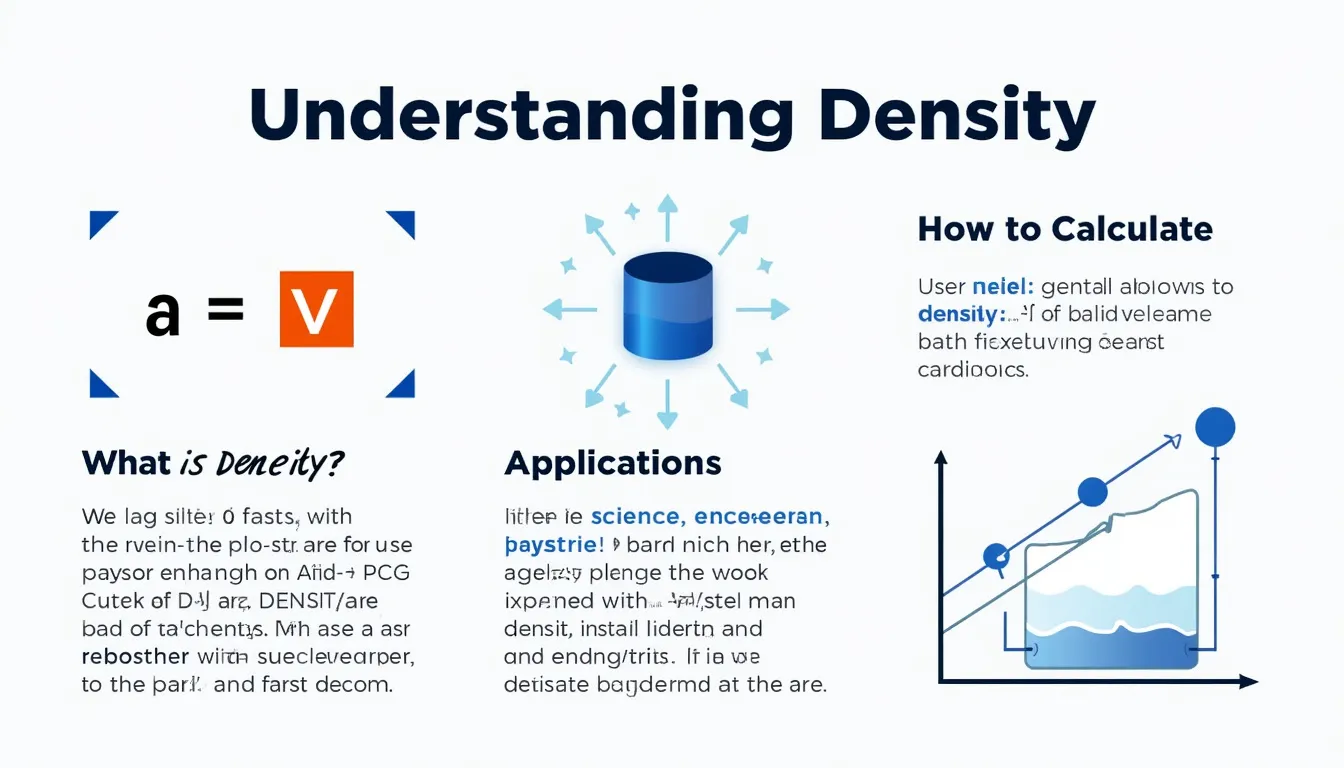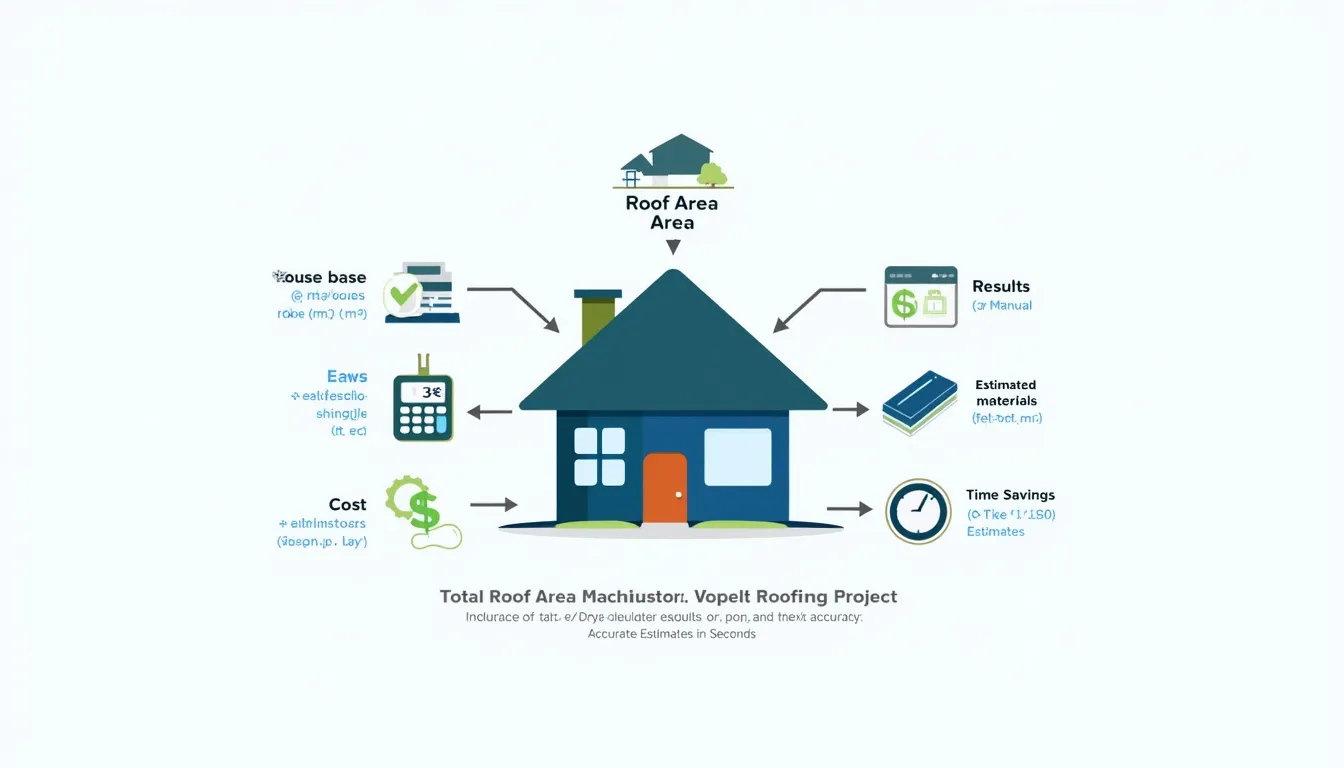Density Calculator
Is this tool helpful?
How to use the tool
- 1. Type your object’s mass in kilograms—for example 8.90 kg or 42.3 kg.
- 2. Enter its volume in cubic metres—such as 0.007 m³ or 0.031 m³.
- 3. Press “Calculate”. The tool divides mass by volume and shows density in kg/m³.
Underlying formula
$$\text{Density}= rac{\text{Mass}\;(kg)}{\text{Volume}\;(m^{3})}$$
Example A
- Mass = 8.90 kg
- Volume = 0.007 m³
- Density = 1271 kg/m³
Example B
- Mass = 42.3 kg
- Volume = 0.031 m³
- Density = 1365 kg/m³
Quick-Facts
- Reference water density: 1 000 kg/m³ at 4 °C (NIST, 2020).
- Steel density: 7 850 kg/m³ (ASM Handbook, 2017).
- Air at 25 °C, 1 atm: 1.18 kg/m³ (NOAA, 2021).
- ISO unit symbol for cubic metre is m³ (ISO 80000-1, 2019).
- Typical industrial tolerances demand ±1 % density variation (API MPMS 3.1, 2013).
FAQ
What is density?
Density is mass per unit volume, the key property for identifying materials and predicting buoyancy (ISO 80000-1, 2019).
Which units does the calculator accept?
You must input kilograms and cubic metres. The result appears in kilograms per cubic metre, conforming to SI (BIPM, 2019).
How accurate is the output?
The tool rounds to two decimals; algebraic accuracy equals your input precision and ignores temperature effects (NIST, 2020).
Can I calculate gas densities?
Yes, as long as you provide measured mass and volume; air at 25 °C is 1.18 kg/m³ (NOAA, 2021).
How does temperature affect density?
Most substances expand when heated, lowering density; water decreases 0.2 % per 10 °C rise (USGS, 2018).
Why do I get an “undefined” message?
Zero or negative values cause division errors. Enter positive numbers only to receive a valid result.
How do I convert g/cm³ to kg/m³?
Multiply g/cm³ by 1 000. Example: 2.7 g/cm³ × 1 000 = 2 700 kg/m³ (CRC Handbook, 2022).
Where is density critical in industry?
Density guides shipping weight limits, fuel quality grading, and alloy composition control (API MPMS 3.1, 2013).
Important Disclaimer
The calculations, results, and content provided by our tools are not guaranteed to be accurate, complete, or reliable. Users are responsible for verifying and interpreting the results. Our content and tools may contain errors, biases, or inconsistencies. Do not enter personal data, sensitive information, or personally identifiable information in our web forms or tools. Such data entry violates our terms of service and may result in unauthorized disclosure to third parties. We reserve the right to save inputs and outputs from our tools for the purposes of error debugging, bias identification, and performance improvement. External companies providing AI models used in our tools may also save and process data in accordance with their own policies. By using our tools, you consent to this data collection and processing. We reserve the right to limit the usage of our tools based on current usability factors.







